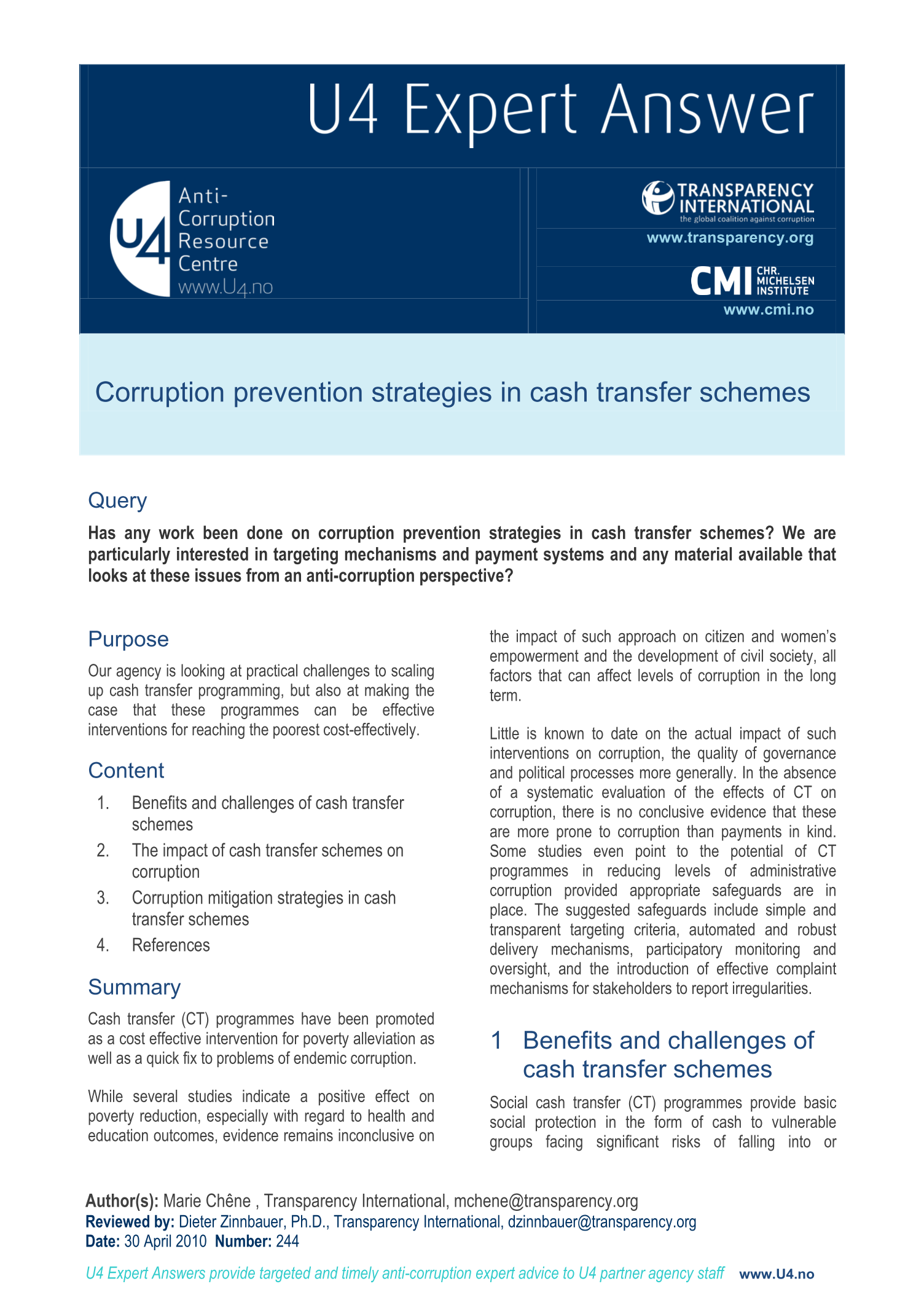U4 Helpdesk Answer
Corruption prevention strategies in cash transfer schemes
Cash transfer (CT) programmes have been promoted as a cost effective intervention for poverty alleviation as well as a quick fix to problems of endemic corruption. While several studies indicate a positive effect on poverty reduction, especially with regard to health and education outcomes, evidence remains inconclusive on the impact of such approach on citizen and women’s empowerment and the development of civil society, all factors that can affect levels of corruption in the long term. Little is known to date on the actual impact of such interventions on corruption, the quality of governance and political processes more generally. In the absence of a systematic evaluation of the effects of CT on corruption, there is no conclusive evidence that these are more prone to corruption than payments in kind.

Cite this publication
Chêne, M. (2010) Corruption prevention strategies in cash transfer schemes. Bergen: U4 Anti-Corruption Resource Centre, Chr. Michelsen Institute (U4 Helpdesk Answer null)
Disclaimer
All views in this text are the author(s)’, and may differ from the U4 partner agencies’ policies.
This work is licenced under a Creative Commons Attribution-NonCommercial-NoDerivatives 4.0 International licence (CC BY-NC-ND 4.0)


